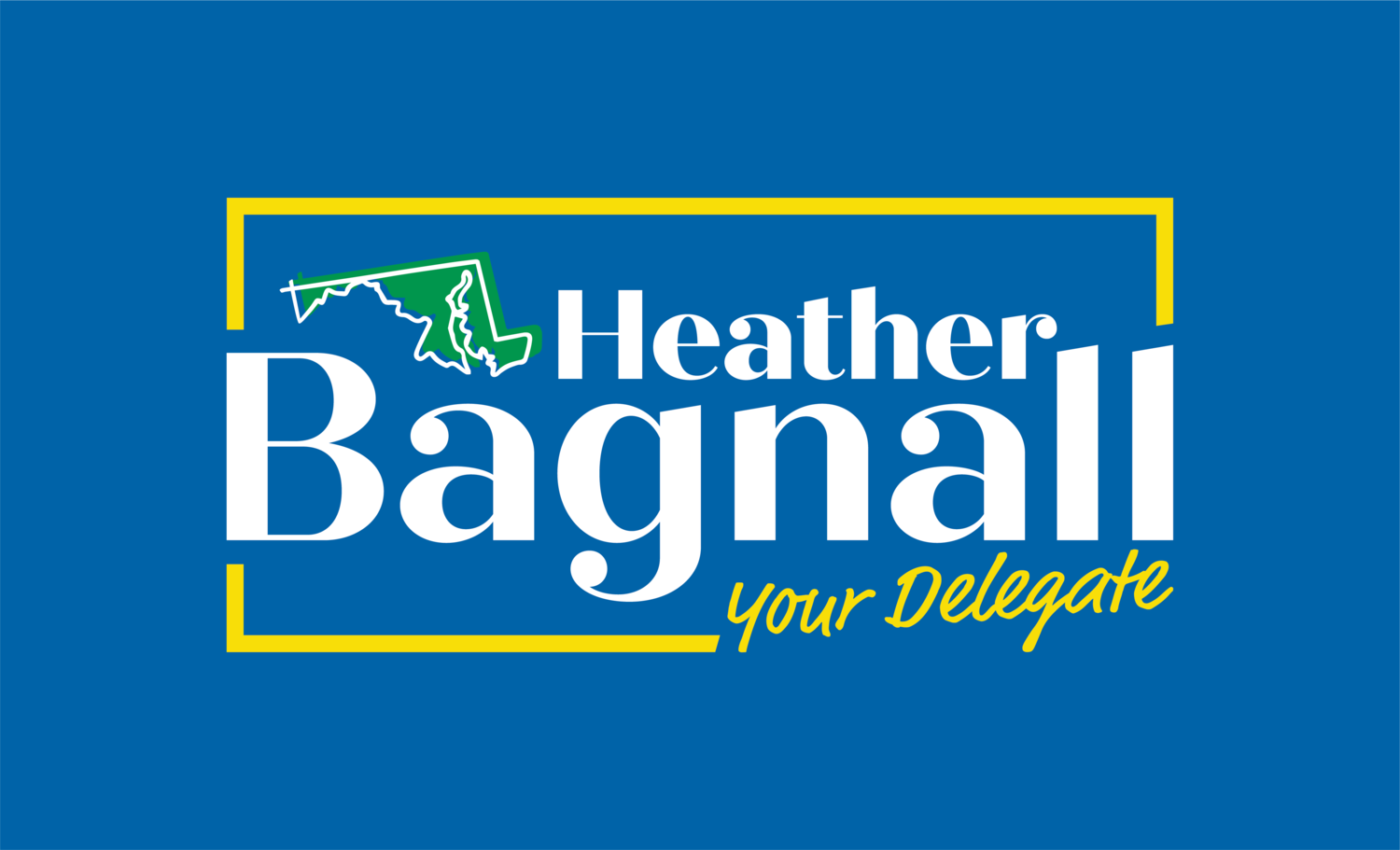According to CDC projections, Sickle Cell Disease affects about 100,000 Americans, including 3,000 Marylanders, but has gone relatively unnoticed. In truth, we don’t know exactly how many people live with the disease or how many more may be carriers. Too many people are ignorant to the harsh realities of this disease or do not see it as a priority, some even believing inaccurately we’ve long cured Sickle Cell disease given its low profile in our public health landscape, but we have an opportunity to correct these injustices.
Meet The Candidate
Taking Stock
It’s hard to believe we are once again at the end of another legislation session, the final session of my first term. By the time of this publication, we’ll have adjourned Sine Die and we’ll know a few things — we’ll know if Maryland has the will to finally end child marriage, if we are ready to at last repeal the spousal defense for sexual assault, and if we are going to make record investment in behavioral health services.
Working Together
It is hard to believe that at this writing we are already in week five of the 2022 session. Bills are dropping daily, over 900 bills have already been read into the House chamber, we’ve had multiple bill hearings and briefings, and I have passed three bills out of committee. Only 15 more to go before the Senate hearings, and of course, the legislative bond initiative hearings when we work to bring money to our local communities and nonprofits for county specific, shovel-ready efforts.
Legislative Changes
Are speed cameras coming to Severna Park? Is more oversight coming to the Anne Arundel County Board of Education? Maryland lawmakers in the Senate and House of Delegates have 90 days from January through April to lobby for their priorities and pass legislation. While much of the debate during the 2022 legislative session will involve redistricting, whether to spend or save the state’s $2.5 billion budget surplus, and fixing the economy, several proposed bills involve issues specific to Severna Park and the Broadneck peninsula.
Addressing Mental Health
January 12, we will gavel in for the 444th Maryland General Assembly session, once again in the shadow of a COVID surge that has taxed our hospital system like never before, and as we not only navigate the challenges of COVID but the necessity and urgency of the people’s work. For anyone who follows my writing, my commitment to behavioral health is no mystery, and with the ever-changing landscape of COVID and the disruptions to so many aspects of our lives, the toll to our constituents in the recovery community as well as those suffering from mental health issues has been significant, and the wave of overdoses and mental health crises is not yet cresting.
MD Medigap Bill
For years, as a full-time performer I experienced first-hand the challenge of lack of access to affordable, comprehensive health care; the fear of an illness or injury which could have a catastrophic impact on my livelihood and financial health. The Affordable Care Act was a game changer for so many, providing access to the peace of mind which comes with health coverage, and having the right coverage makes a world of difference for people. However, with the passage of the Affordable Care Act, the gaps in coverage, the challenges of ensuring affordability became more and more clear, and medical bills can quickly mount and create serious problems for patients and their families.
Learn By Example
This past November, we commemorated the 20th anniversary of the 9/11 attacks, which have so significantly altered our world. Here in the Baltimore-Washington metropolitan area, we experienced a second wave of terror in October 2002 when, for 22 days, we were threatened by a sniper whose seemingly random acts of destruction were like a living nightmare. Many of us were left trying to make ourselves as small as possible when we saw a white van on the road, or we would walk in a zigzag pattern to fill up at the gas station, checking in by pay phone with friends and family between work and home since for many of us, cellphones, now commonplace, were still something relatively inaccessible in 2002.
Oral Health Care
Since the elimination of Maryland’s Adult Dental Medicaid Program more than 30 years ago, many Marylanders have muddled through their oral health care needs with inconsistent care, if they receive care at all. Over a period of six years, between 2011 and 2017, Maryland lost 16 of its own citizens to dental cellulitis, an infection of the tooth at its root.
MHAI Update
At last, we have arrived in October, and many of the bills which we passed in the General Assembly become law. Among the many laws that went into effect October 1 was a bill that came from this community, the culmination of two and half years of work, research, education, advocacy, debate and compromise: House Bill 132/Senate Bill 41, the Mental Health Access Initiative.
Keeping Arts Afloat
For the last three decades before entering the Maryland General Assembly as your delegate, I worked as a performer, director, arts educator and arts administrator. I taught theater with our Anne Arundel County Public Schools performing and visual arts (PVA) program, a curriculum which I created called “Cultivating Kindness through Theatre Arts,” which uses theater games to teach communication, team building, empathy and compassion.
When the pandemic first hit, I knew that my industry would be one of the first to close and last to return because the arts, and the performing arts in particular, rely on audiences; live theater, though it can be captured onscreen, is simply not the same artform when it is not live.
Mental Health Access
New Maryland Law Will Expand Adolescents’ Access to Mental Health Care
Published - June 14, 2021
Author - Hannah Gaskill
Publication - Maryland Matters
Whole Article - https://www.marylandmatters.org/2021/06/14/new-maryland-law-will-expand-adolescents-access-to-mental-health-care/
Pride 2021
June is Pride Month, and it couldn’t feel more relevant. My support for pride and for the LGBTQ+ community goes back decades. I’m always loath to tell a story which is not my own, however, as we see a renewed national narrative of anti-LGBTQ+ rhetoric and legislative attacks on gay and transgender rights, in particular dangerous, abusive attacks on our transgender and queer and questioning youth, it becomes all the more important for our LGBTQ+ community to hear and feel support from their elected representatives.
Understanding MHAI
Last year, after multiple meetings not only with these young people but also adults in our community asking for solutions to help keep their children safe following a rash of youth suicides, I introduced the Mental Health Access Initiative, which corrects a troubling disparity between how we address substance use disorder (SUD) and mental illness.
Combating Misinformation
It is hard to believe we are already past the midpoint of a legislative session unlike any other. Working within the constraints of COVID — yet trying to effectively pass meaningful legislation not only reactive to the pandemic but proactive to the future of Maryland all while working in a hybrid system — means that we have to be intentional and strategic.
Hearing From Students
Delegate Bagnall represents District 33 in the Maryland General Assembly. Her district covers Severna Park, Crofton, and most of central Anne Arundel County. She was first elected in 2018 and currently serves on the Health and Government Operations committee and the Public Health and Long-Term Care subcommittees. She agreed to sit down with the Talon to answer questions about student voices, mental health, and what it is like to be a Delegate.
Constitutional Crisis
This is a challenging article to write. Normally this time of year, we talk about our legislative priorities or what we believe to be the hot-button issues, or how we believe the session will go. Given the multiple challenges of a raging pandemic (which has had the knock-on effect of an economic crisis), the stalemate in Congress (which has stalled federal aid essential to our state and local partners), the delays in the rollout of the vaccine essential to our recovery, and the hurdles presented in trying to operate with transparency and engagement in the virtual realm, any one of these topics could easily fill a column. However, I believe as elected officials, we must also speak to the moment. Many of you have heard me before say that words matter, that as representatives, we have a platform and an expectation to speak truthfully and thoughtfully.
The Finish Line
We’ve all heard the moral, “Slow and steady wins the race,” the lesson of arguably Aesop’s most famous fable, which tells the story of the Hare, arrogant and fast but ultimately unsuccessful, and the Tortoise, humble and steadfast, whose determination wins the day. There is, however, a rarely discussed secondary lesson in this fable, a lesson that is far more common in our society, and that is the danger of giving up before crossing the finish line. The winner isn’t the one most prepared, best qualified or even most deserving, but the one who finishes the race.
Reform Maryland's Budget
As an elected official, I am exceedingly aware that our words carry weight and that there are times when our constituents look to us to interpret and disseminate information about the decisions we are making. This year we have two important ballot questions that will affect the future of the state of Maryland, which is why I must push back on the advice of my colleague and urge Anne Arundel County voters not to follow the advice of state Sen. Ed Reilly — and instead cast a vote for wider democracy by supporting state ballot Question 1.
Time To Make History
In November 2018, I won by 184 votes 10 days after the election. On election night, a local paper called the race for my opponent. I was asked why I wasn’t conceding, and I said because I hadn’t lost yet; I told voters that every vote counts and, therefore, we would wait until we counted every vote. We made history because we showed up.


















